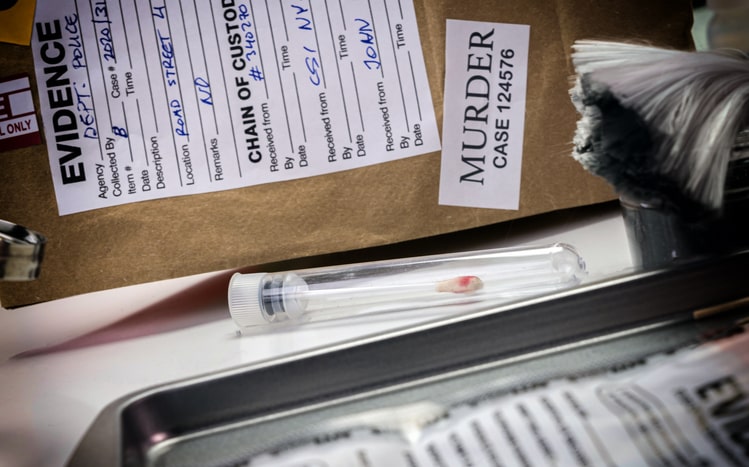At O’Brien & Eggleston PLLC, our Albany criminal defense attorneys know that DNA evidence has become one of the most powerful tools in criminal investigations. It offers prosecutors and defense lawyers critical information about a suspect’s involvement in a crime.
One standard method for collecting DNA is through buccal swabs, a simple, non-invasive procedure that has significant implications for those facing criminal charges. Understanding how DNA is collected and used in your New York criminal case can be vital to building a solid defense.

What is a Buccal Swab?
A buccal swab is a method of collecting DNA by swabbing the inside of a person’s cheek. Using a small, cotton-tipped applicator, law enforcement or medical personnel gently scrape cells from the lining of the mouth. These cells contain genetic material that can be analyzed in a lab to create a DNA profile, which can then be compared to DNA found at a crime scene or on physical evidence.
The process is quick and painless and is often used because it provides reliable DNA without requiring more invasive procedures, such as drawing blood.
How Buccal Swabs Are Used in New York Criminal Cases
In New York, buccal swabs are typically used when law enforcement wants to compare a suspect’s DNA to evidence collected during a criminal investigation.
This can happen at various stages of a case, including:
In some instances, police may request a buccal swab during the arrest process. If you are suspected of committing a serious crime, law enforcement may obtain a court order to take a buccal swab, especially if DNA evidence is believed to be crucial in linking you to the crime.
In other instances, law enforcement may request a buccal swab via a search warrant, which requires a judge’s approval. This often happens when investigators have reason to believe that your DNA will match evidence from the crime scene.
DNA evidence can also be critical in exonerating someone wrongly accused of a crime. A buccal swab may be used to establish that your DNA does not match the perpetrator’s, potentially clearing your name.
The Accuracy and Reliability of DNA Evidence in New York Criminal Cases
DNA evidence is generally regarded as highly reliable due to its scientific basis. The human genome is unique to each individual, except identical twins, meaning that a match between DNA collected via a buccal swab and DNA found at a crime scene can be compelling evidence of involvement.
However, DNA evidence is not infallible, and several factors can affect its accuracy, including:
If proper protocols are not followed when collecting, storing, or analyzing DNA samples, contamination can occur, leading to inaccurate results. Cross-contamination between samples can falsely link individuals to a crime they did not commit.
DNA evidence does not always result in a complete profile. In some cases, only a partial match is made, which can be less conclusive and may require additional evidence to substantiate a charge.
Maintaining an unbroken chain of custody for DNA evidence is essential. If there are gaps or mishandling in the chain of custody, the evidence can be called into question, potentially weakening the prosecution’s case.
Legal Implications of DNA Evidence from Buccal Swabs
While DNA evidence is often seen as definitive, there are significant legal considerations to keep in mind if a buccal swab is requested or used in your case:
Taking a buccal swab is considered a search under the Fourth Amendment, which protects individuals from unreasonable searches and seizures. This means law enforcement must have your consent or a valid court order to collect your DNA through a buccal swab. Our defense attorneys can challenge the collection of DNA evidence if it was obtained without proper legal procedures.
- Challenging the DNA Match
Even if there is a match between your DNA and the evidence in question, our attorneys can challenge the validity of the test results. This can include questioning the lab’s methods, the potential for contamination, or the possibility of an incomplete or misleading match.
- Using DNA for Your Defense
Just as DNA can be used to implicate you, it can also be a critical tool for your defense. If DNA evidence points to another individual or rules out your involvement, our attorneys can use this to argue for reduced charges, a dismissal, or even an acquittal.
What to Do if Law Enforcement Asks You to Provide a Buccal Swab
If law enforcement requests that you provide a buccal swab, it’s essential to understand your rights and the implications.
Here’s what you should do:
- Consult Our Skilled Albany County Criminal Defense Attorneys
Before agreeing to provide a buccal swab, consult with a criminal defense attorney who can advise you on your legal rights and the potential consequences. We will ensure that any DNA collection follows proper legal procedures and will work to protect your interests.
- Do Not Consent Without Legal Guidance
If the police ask for your consent to collect a buccal swab, you are not required to agree without first speaking to your attorney. In some cases, it may be beneficial to withhold consent until a court order is obtained.
- Challenge Unlawfully Obtained Evidence
If DNA was collected unlawfully or without your consent, our defense attorneys can file a motion to suppress the evidence, which may lead to it being excluded from the case entirely.
Whether the goal is to challenge the validity of DNA evidence or use it to exonerate you, understanding how buccal swabs work and what they mean for your case is a crucial part of building a solid defense.
Contact Our Criminal Defense Lawyers in Albany at O’Brien & Eggleston PLLC
Contact our Albany County criminal defense lawyers at O’Brien & Eggleston PLLC today by calling (518)-391-2369 or online to ensure your rights are protected. We have a strong track record of producing real results for our clients. Allow us to pursue the best outcome for your case, too.





